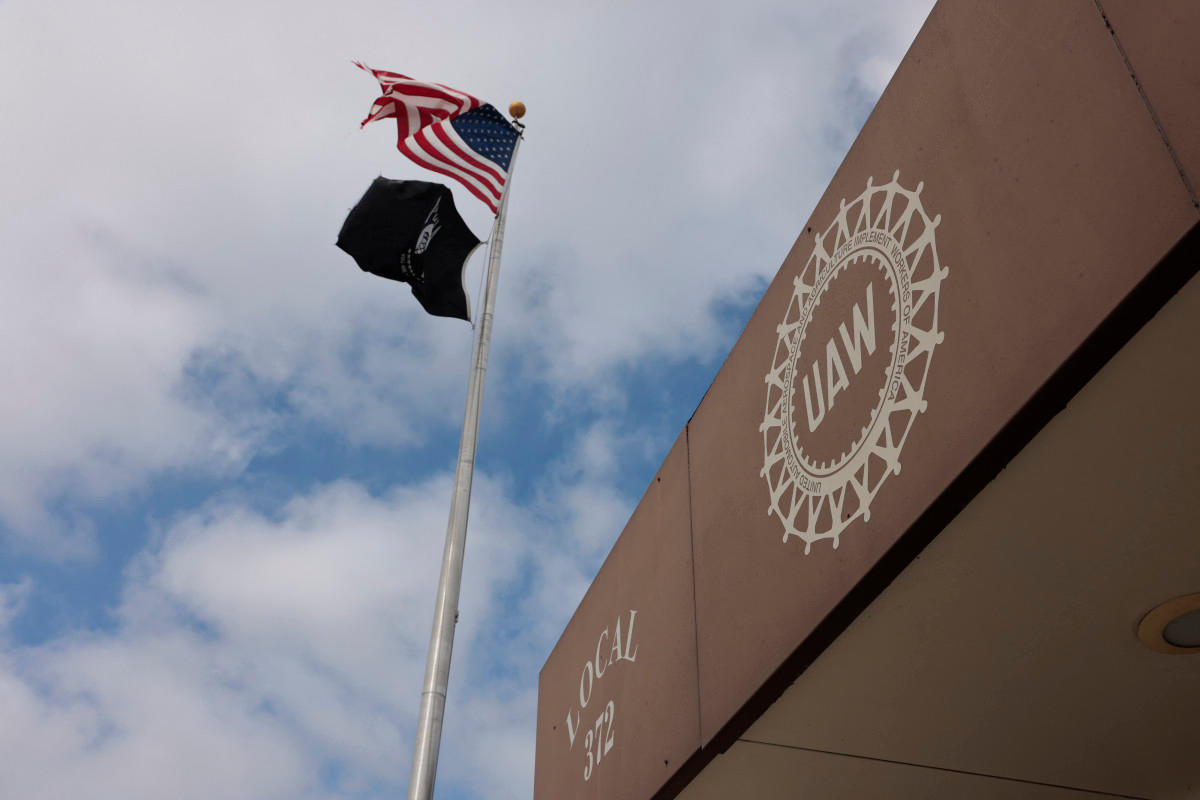
Why Detroit Automakers Are Blasting U.S.’ Tariff Deal With Japan originally appeared on Autoblog.
Japan’s U.S. trade deal leaves Detroit’s Big Three fuming
The U.S. has agreed to lower the tariff rate on Japan’s auto exports to 15%, and a group representing General Motors (GM), Ford, and Stellantis has sounded off. Matt Blunt, head of the American Automotive Policy Council (AAPC) representing these Detroit manufacturers, stated: “Any deal that charges a lower tariff for Japanese imports with virtually no U.S. content than the tariff imposed on North American built vehicles with high U.S. content is a bad deal for U.S. industry and U.S. auto workers,” Reuters reports. Trump has also floated increasing tariffs on Mexico and Canada to 30% and 35%, respectively, by August 1. The AAPC similarly criticized the U.S. for agreeing to a 10% tariff rate on Britain’s first 100,000 annual vehicle exports to America.
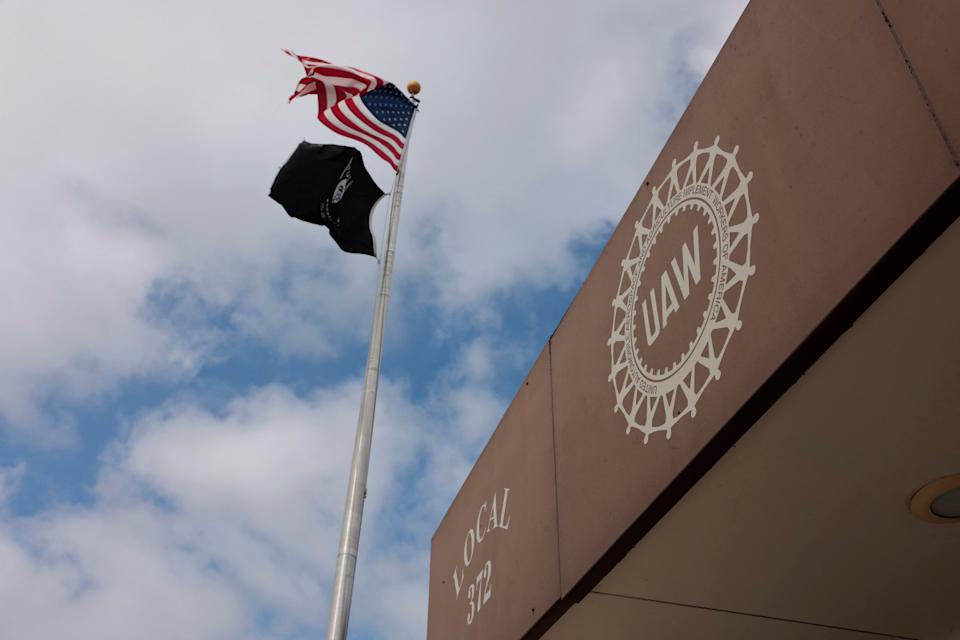 UAW Local 372 in Trenton, MichiganGetty
UAW Local 372 in Trenton, MichiganGettyHowever, the AAPC wasn’t the only organization that spoke out against the Trump administration’s deal with Japan. The United Auto Workers (UAW) union said in a post on X, formerly Twitter: “The UAW is deeply angered by the Trump administration’s announced trade deal with Japan. What we’ve seen so far makes one thing clear: American workers are once again being left behind.” This group added that the deal rewards transnational automakers that rely on low-road labor practices, which include substandard wages, excessive temps, and union-busting. Detroit’s “Big Three” automakers are already under financial pressure from tariffs. GM shared this week that it suffered $1.1 billion in tariff-related losses during Q2, with Q3’s forecast appearing worse. Stellantis’ tariff losses so far are less, but still hefty at about $352 million. Like GM, Stellantis anticipates that tariffs will further erode profits during the second half of 2025. Ford has anticipated a $1.5 billion financial hit from tariffs this year.
How Japan’s trade agreement could eventually benefit U.S. automakers
While Japan’s deal doesn’t immediately benefit Detroit Three companies like Ford, which assembled over 80% of its vehicles in the U.S. last year, it could pay dividends in the long run. As part of its tariff agreement with the Trump administration, Japan agreed to provide the U.S. with greater access to its auto market. In March, Cadillac said it was introducing right-hand-drive electric vehicles (EVs) and promised a complete lineup of EVs in Japan, according to The Detroit News. President Trump posted on Truth Social: “Remember, Japan is, for the first time ever, OPENING ITS MARKET TO THE USA, even to cars, SUVs, Trucks, -and everything else, even agriculture and RICE, which was always a complete NO, NO.” Despite the AAPC clearly expressing its feelings about Japan’s trade deal, U.S. Commerce Secretary Howard Lutnik stated that he spoke with CEOs whose companies are represented by the group, and said, “They are cool with it,” CNBC reports.
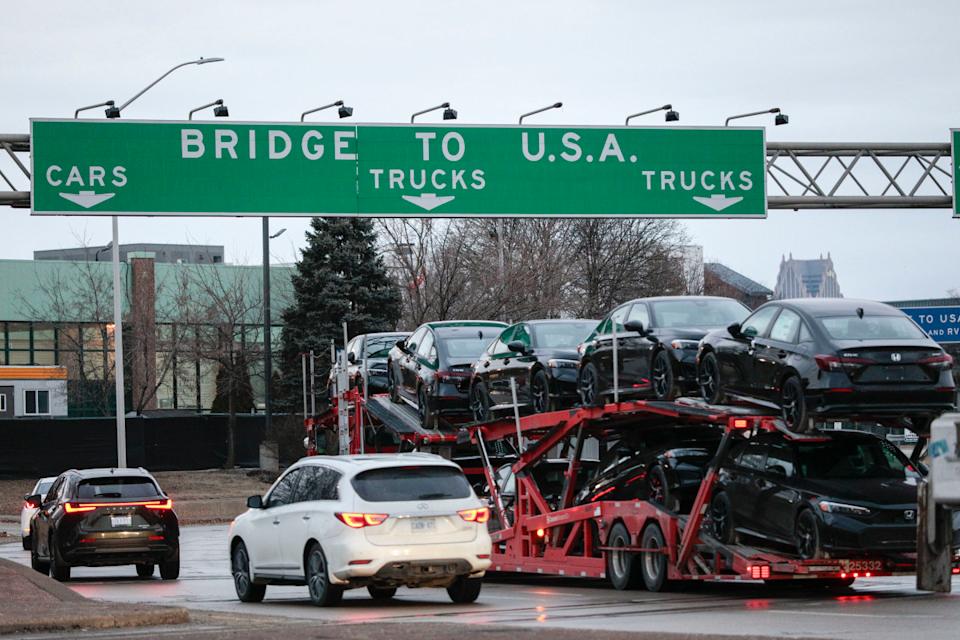 A car hauler crossing the Ambassador Bridge between Windsor, Canada and Detroit, MichiganGetty
A car hauler crossing the Ambassador Bridge between Windsor, Canada and Detroit, MichiganGettyFinal thoughts
Japan’s trade agreement with the U.S. offers domestic benefits, including a $550 billion investment in American industries such as automotive manufacturing, $150 billion more than the initially requested amount, and increased access to Japan’s car market, which could become a priority for Detroit’s Big Three. Still, major U.S. automakers like GM, Ford, and Stellantis have a right to be upset as they wait for Canada and Mexico negotiations to conclude and hear President Trump threatening increased tariffs on both countries that could significantly impact USMCA (United States-Mexico-Canada Agreement) manufacturing.
Why Detroit Automakers Are Blasting U.S.’ Tariff Deal With Japan first appeared on Autoblog on Jul 25, 2025
This story was originally reported by Autoblog on Jul 25, 2025, where it first appeared.



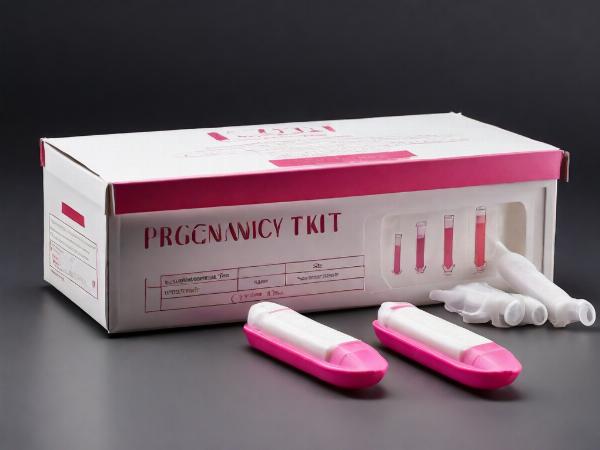


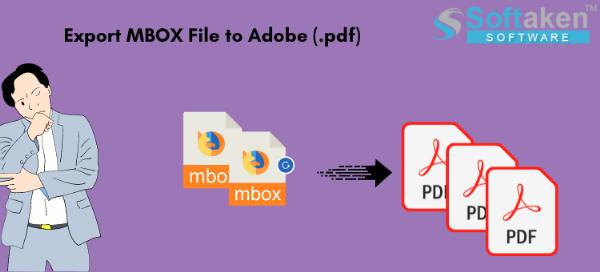



![Structural Adhesives Market [2028] Exploring Potential, Growth, Future & Trends](http://paseban.com/zb_users/upload/2025/08/20250831123209175661472915180.jpg)


